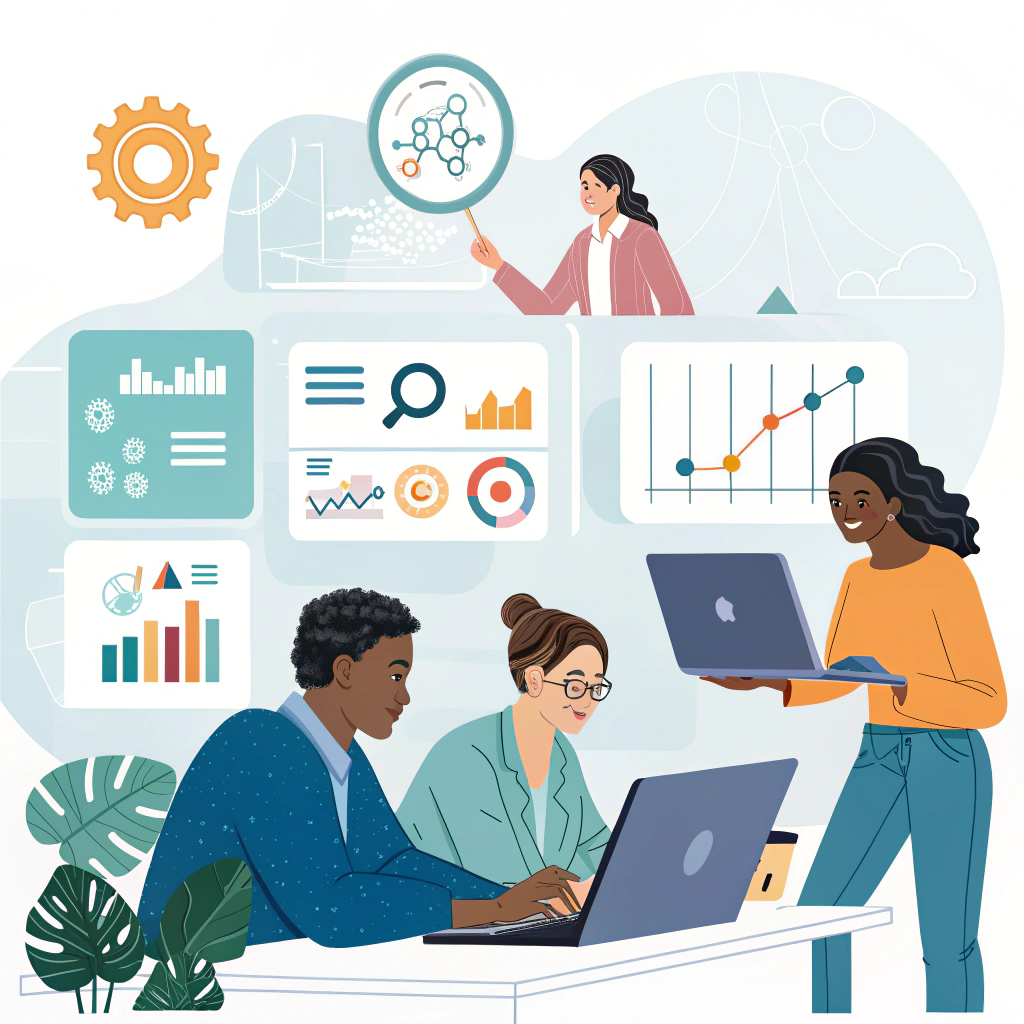
As we move deeper into the digital age, the push for more inclusive, equitable, and diverse workplaces is gaining momentum across industries. Organizations are realizing that diversity isn’t just a moral imperative—it’s a strategic advantage. Diverse teams are more innovative, adaptable, and better equipped to meet the complex demands of a global marketplace. At the same time, Artificial Intelligence (AI) is transforming nearly every aspect of how businesses operate, including how they manage people and culture.
At CorporateOne, we are passionate about designing workplaces of the future—workplaces that are not only digitally empowered but also ethically grounded. As such, we see AI as a powerful catalyst for advancing Diversity, Equity, and Inclusion (DEI). When used responsibly, AI can help dismantle long-standing biases, democratize opportunity, and build stronger, more human-centered organizations.
Despite widespread efforts to build inclusive cultures, bias—conscious and unconscious—continues to infiltrate key decision-making processes, from hiring and promotion to compensation and team dynamics. Traditional DEI programs, while essential, often lack the scale, speed, and objectivity needed to make lasting change.
This is where AI steps in. With its ability to process vast amounts of data, detect patterns, and operate without emotional or psychological bias, AI can augment human judgment and drive more equitable outcomes.
But AI is not inherently neutral. If built or trained on biased data, it can reinforce the very inequities it aims to eliminate. That’s why ethical oversight and human-centered design are crucial components of any AI-driven DEI initiative.
Let’s explore some of the key ways AI is reshaping the DEI landscape:
Recruitment has historically been one of the most bias-prone areas in HR. From the language used in job descriptions to the résumé screening process, unconscious bias can significantly limit diversity.
AI tools now help recruiters:
Platforms like HireVue and Pymetrics, for example, use AI to focus on behavioral and cognitive attributes, helping companies discover talent from underrepresented backgrounds they might otherwise overlook.
Bias can also seep into performance reviews, affecting who gets promoted, rewarded, or recognized. AI-driven tools are helping organizations audit these evaluations by:
By flagging these patterns, AI enables HR teams to implement corrective strategies and promote fairness.
One of the biggest challenges in managing DEI is measuring its effectiveness. Traditional surveys are periodic and often lack nuance. AI can:
This level of insight makes it easier to pivot DEI strategies in real time and ensure continuous progress.
Language shapes culture. AI-powered language tools can now:
These solutions are not just about avoiding offense—they’re about creating a culture where everyone feels heard and respected.
Inclusivity also means ensuring that employees with different abilities can participate fully in the workplace. AI is playing a major role in:
This not only improves accessibility but also empowers a more globally diverse workforce.
While the potential of AI in DEI is exciting, it’s essential to proceed with caution. Without proper oversight, AI can perpetuate existing societal biases, especially if trained on biased datasets. That’s why organizations must:
At CorporateOne, we advocate for “Responsible Innovation”—AI systems that enhance human dignity, not replace it.
The intersection of AI and DEI presents a transformative opportunity. By automating bias-prone tasks, generating actionable insights, and personalizing support, AI can help organizations create more equitable, respectful, and human workplaces.
But this transformation doesn’t happen by accident. It requires intentional design, ethical leadership, and a commitment to continuous learning. Organizations that embrace this mindset won’t just meet today’s DEI standards—they’ll set the tone for the future of inclusive work.
At CorporateOne, we are committed to shaping workspaces that reflect the best of technology and humanity. We believe that diversity, equity, and inclusion are not side initiatives—they are central to innovation, productivity, and sustainable growth.
AI is not a magic wand, but when used thoughtfully, it is a force multiplier for positive change. As we design the future of work, let’s ensure it’s a future where everyone has a seat at the table—and a voice that’s heard.
